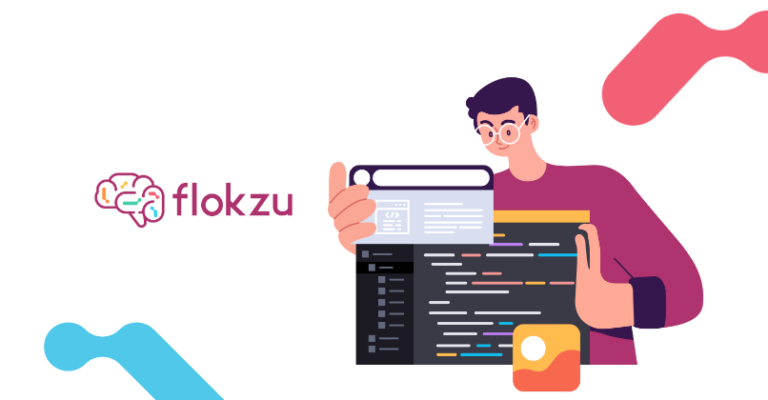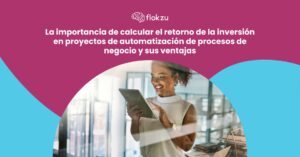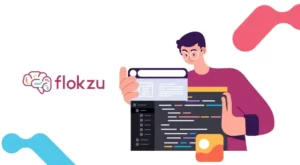According to Gartner’s definition, citizen developers are employees who create applications, for their personal use or for other employees, using tools that are not prohibited in the organization. They are individuals (not positions or roles), who do not report to or report to the Information and Communications Technology (ICT or simply IT) department.
The key point here is that a citizen developer does not have to have a background in IT, computing, or programming. On the contrary, it is understood that it is a person from another area who using appropriate tools, can create their own applications to meet business needs.
The in – dependence on IT
Why is the concept of citizen developers so interesting? For a long time now – and there is no reason to believe that this will change in the short term – IT departments have very little time available. They are always “jammed” with work, with hundreds of pending tasks, and trying to meet the organization’s strategic guidelines in IT. And of course, they are also installing new versions of their entire technology stack, applying security patches, and putting out “fires” that always exist.
All this activity in IT departments leaves very little room for them to listen to new employee needs, let alone build new applications. Developing (or acquiring) a new system is a time-consuming task. And then, once you have that application, you have to maintain it, install updates, troubleshoot it, manage it, back it up, etc. Because of all of the above, IT departments find it difficult to meet requests for new applications from other employees.
However, business users have needs. And if IT doesn’t address them, they will address them themselves.
This is what the concept of citizen developers is all about, people who decide “not to wait any longer” for applications for their needs. And they embark on building them themselves. Whether they will use them individually or with their teams.
We will now explore the fundamental capabilities that a citizen developer must have in order to create applications. As a concrete application case, we will see how these concepts apply to the digitization of processes without programming.
Capabilities of citizen developers
There are four main capabilities that citizen developers have: understanding and being able to formalize a problem in their organization, creating an application to solve it, evangelizing their teams to use that application, and last (but not least), improving the application based on feedback and usage. Let’s look at each of these capabilities.

Understand the business
The first capability corresponds to the citizen developer being able to understand the business, their role within the company, the objectives pursued, and how an application could help them solve their problems to achieve those objectives.
From that understanding, it is critical that citizen developers are able to formalize and accurately describe those needs and the desired solution. A model is always an abstraction of reality, which does not contain all the details, and focuses on the most important elements. The citizen developer must be able to do this. Getting distracted by details or use cases that happen sporadically will prevent him from being able to build a useful application in a short time.
As a concrete example, let’s think of a citizen developer who is in the process of digiting a business process (workflow) without coding. He must be able to understand how that process works in his organization, what goal it pursues, what stages it has, who are the people involved in each stage and tasks they have to perform, etc. And then, you must build a model of that process, by means of a graphical representation (formal, for example, using BPMN notation). The following is a concrete example of a Flokzu process, to attend personalized quotation requests. This process could be defined by a citizen developer who is trying to digitize and automate it through a graphical diagram, without programming:

Creating applications
The citizen developer must be able to create his own applications. To do so, obviously, he will not have to program (code). But neither should it require technical knowledge, complex software installation, or advanced configurations. The so-called low-code tools meet all these requirements. They are sufficiently intuitive tools that allow you to build applications in a simple way and without advanced computer knowledge.
Another relevant point when creating applications is where they will run. It is different to create an App that is downloaded and installed on people’s phones, than one that resides on a local server, than one that runs 100% in the cloud.
Citizen developers usually choose the latter scenario: tools that are already available in the cloud, and run there. Once the application is created, the deployment of that application is already solved, and users simply use it.
Agility in the creation of these applications is key. It must be possible to build them quickly, to show results, and gain support. But it must also be possible to give them evolutionary maintenance, to incorporate corrections or improvements in an agile way. This iterative cycle must be repeated many times throughout the life cycle of the new application.
Continuing with the example of the initiative to digitize processes without programming, Flokzu is a specific tool for the citizen developer to quickly create a BPM or workflow application. In addition to the workflow illustrated previously, he will be able to define the associated form, the people working at each stage, and the relevant business rules. And then, simply deploy this application to make it available to end-users.
Evangelize
Some citizen developers create applications for themselves, to make their daily work more efficient, effective, or simple. Others make them for their teams. In this second group, it is vital to evangelize the new application to other users.
People have inertia, and generally prefer to continue doing things the way they have been doing them. This is neither right nor wrong, it is a fact of reality. But to change that inertia, we must intervene.
We must get them to change an acquired behavior. And that they change their way of working to adopt the new application.
We call Evangelizing the task of communicating the benefits of the new application, motivating the other team members to use it, and convincing the detractors not to at least oppose it.
As the application delivers the expected results, it is very important to share those achievements with the early adopters. It should be a shared celebration. The citizen developer will leverage this success to gain new supporters, sponsors, and eventually management support and budget.
Improve.
Once the application is up and running, the story is not over. On the contrary, it has just begun. Applications are alive, require corrections and evolutions. The fundamental part of the task of citizen developers, correcting the problems that are sure to appear. It is inherent to software. The important thing is to identify them, solve them and release a new version of the corrected application.
In addition, it is essential to define indicators to know if the application is meeting the initial objectives (identified in the first stage of “Understand”). And as these objectives may change along with the business (due to changes in the market, in regulators, within the company, etc.), the application will also have to change. We call this evolutionary development, and it is necessary so that the application does not become obsolete in a short time.
Finally, other users must be involved in this evolution. Let them propose improvements (after using the application for a reasonable time). This will generate confidence and greater attachment to the new application, reinforcing the cycle of continuous improvement.
Agile construction methodology
The methodology for the citizen developers that are building their own applications should be agile, and address three key requirements:
- Proof of Concept (PoC). Quickly build protypes and versions that show the concept working. Unfinished applications, but including core functionalities. The citizen developer is not a Software Engineer, it is very important that he/she can see the results quickly to correct course if necessary.
- Speed. The time taken from detecting the need and releasing the PoC should be minimal. At most a couple of days. Ideally, a few hours. Naturally, there may be more complex situations or processes that take longer. But the concept is clear, the iteration should be very fast.
- Return on investment. The benefit of building the application must be visible, and measurable. Be it in time saved, better customer service, cost reduction, etc. The application should not be built without knowing what is expected to be received. Remember that the application will probably be built during working hours, so this time investment must be justifiable.
The three elements above are key to the Evangelization activity. Being able to show the application (PoC) helps others understand it. Doing it quickly and being able to incorporate the suggestions received, stimulates people’s participation and support. Showing a concrete and tangible ROI will help gain support from superiors for the first, and for subsequent applications.
Continuing with the example of process digitization, using Flokzu the citizen developer will be able to build the PoC in minutes and show the process working. From there, he will justify the time saved by eliminating hundreds of e-mails, endless Excel spreadsheets, and even paper shuffling (with its associated costs). If the process involves customers or suppliers, it will probably also improve their satisfaction.
Impact on the professional career
We have seen in several companies on different continents using Flokzu, how a citizen developer proposes and builds an application to improve one process in the organization. The application is a success, other users adopt it. The citizen developer earns the credit. But it also becomes clear that the same technology could be used for other applications. Naturally, the same person is asked, who gains relevance and reputation. After a while, he has many new doors open for his professional development.
If the construction of the application is successful, the citizen developer will have recognition from his superiors. This is likely to have a positive impact on his professional career.
In addition, the experience of having built his own application generates in the citizen developer a very valuable experience to face new problems or challenges in his professional life. He knows that he can use low-code tools available in the cloud, so as not to depend on third parties and improve individual or team efficiency.
Conclusions
Citizen developers are non-IT people who build their own applications with autonomy. They don’t depend on the IT departments to meet their individual needs or those of their teams. In this article, we have presented the fundamental pillars for them to be successful when building their own apps.
Low-code tools are the right instrument for citizen developers. When it comes to developing applications for the digitization of business processes and workflows, Flokzu is the exact instrument.
Would you like to learn how you can automatize your processes? We invite you to schedule a meeting with one of our experts, so we can automate together a complete process, and improve your organization.




























